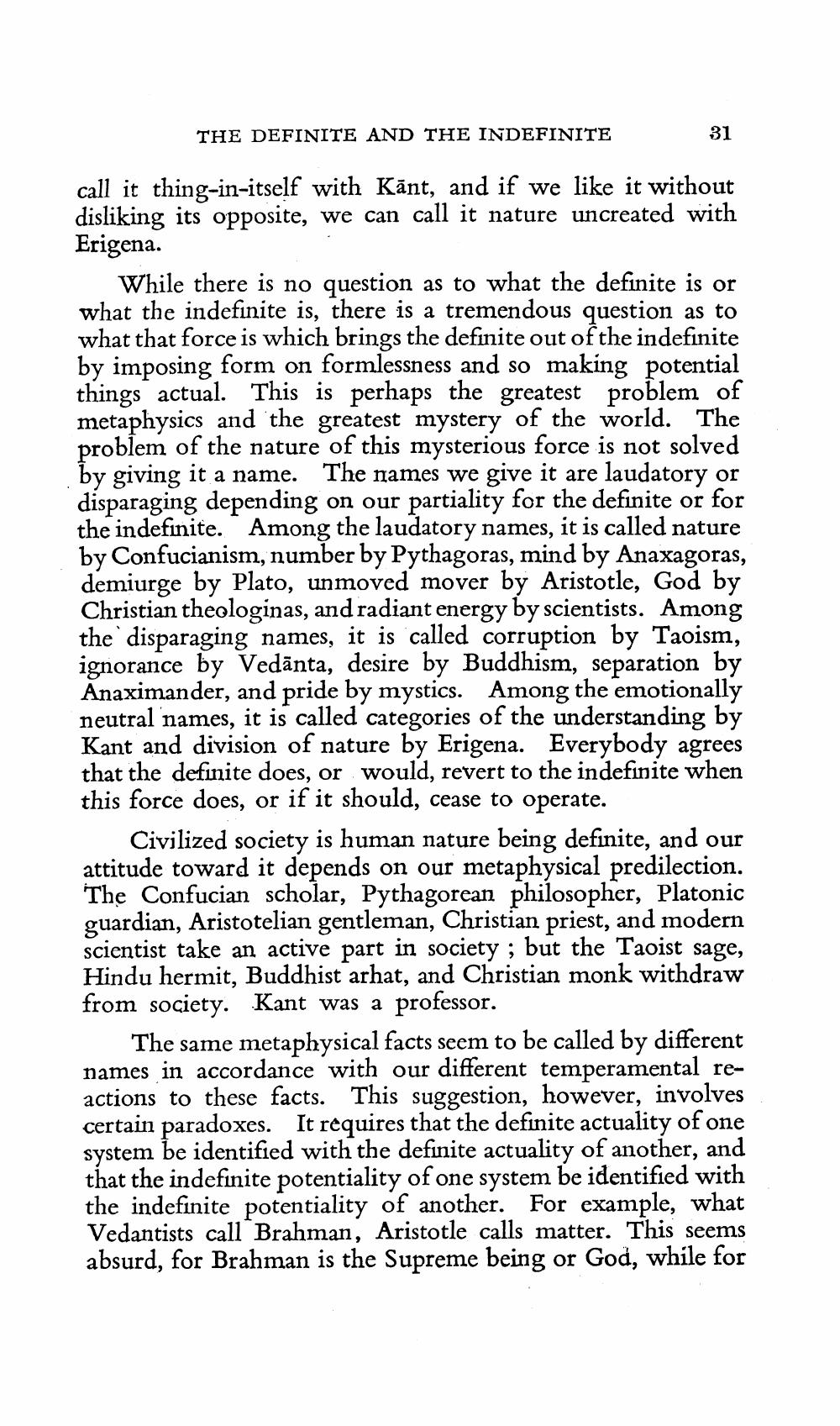Book Title: Definite And Indefinite Author(s): George Burch Publisher: George Burch View full book textPage 7
________________ THE DEFINITE AND THE INDEFINITE 31 call it thing-in-itself with Kānt, and if we like it without disliking its opposite, we can call it nature uncreated with Erigena. While there is no question as to what the definite is or what the indefinite is, there is a tremendous question as to what that force is which brings the definite out of the indefinite by imposing form on formlessness and so making potential things actual. This is perhaps the greatest problem of metaphysics and the greatest mystery of the world. The problem of the nature of this mysterious force is not solved by giving it a name. The names we give it are laudatory or disparaging depending on our partiality for the definite or for the indefinite. Among the laudatory names, it is called nature by Confucianism, number by Pythagoras, mind by Anaxagoras, demiurge by Plato, unmoved mover by Aristotle, God by Christian theologinas, and radiant energy by scientists. Among the disparaging names, it is called corruption by Taoism, ignorance by Vedānta, desire by Buddhism, separation by Anaximander, and pride by mystics. Among the emotionally neutral names, it is called categories of the understanding by Kant and division of nature by Erigena. Everybody agrees that the definite does, or would, revert to the indefinite when this force does, or if it should, cease to operate. Civilized society is human nature being definite, and our attitude toward it depends on our metaphysical predilection. The Confucian scholar, Pythagorean philosopher, Platonic guardian, Aristotelian gentleman, Christian priest, and modern scientist take an active part in society ; but the Taoist sage, Hindu hermit, Buddhist arhat, and Christian monk withdraw from society. Kant was a professor. The same metaphysical facts seem to be called by different names in accordance with our different temperamental reactions to these facts. This suggestion, however, involves certain paradoxes. It requires that the definite actuality of one system be identified with the definite actuality of another, and that the indefinite potentiality of one system be identified with the indefinite potentiality of another. For example, what Vedantists call Brahman, Aristotle calls matter. This seems absurd, for Brahman is the Supreme being or God, while forPage Navigation
1 ... 5 6 7 8 9 10 11 12
